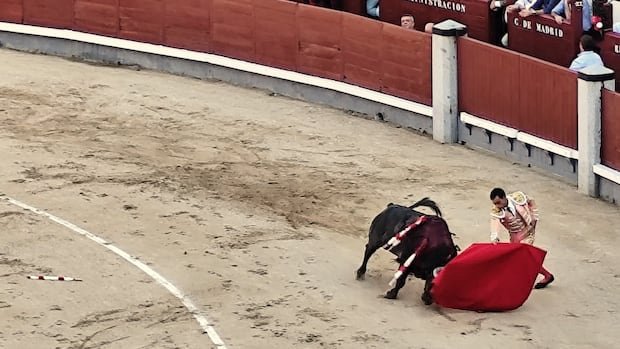In the historic Las Ventas bullring in Madrid, a traditional brass band sets the tone as matadors, picadors, and banderilleros enter the arena. Each participant will confront one of six formidable black bulls, weighing at least half a ton, in a carefully orchestrated sequence. The bull is first lanced by the picador on horseback, followed by the banderilleros’ dagger thrusts. Finally, the matador, adorned with his iconic cape, delivers the decisive strike after an intricate dance with the bull, cheered on by the enthusiastic crowd.
Pilar Martín, a bull breeder for Las Ventas, described bullfighting as a reflection of life, where death, a taboo subject, is confronted and transcended. While bullfights have a long history in Spain dating back centuries, a significant portion of the population, especially the younger generation, now opposes the practice due to perceived cruelty.
Animal rights activists are leveraging this growing disapproval to advocate for the complete prohibition of bullfighting, starting with stripping its status as a cultural heritage symbol in Spain. Despite the economic significance of the bullfighting industry, valued at around 1.6 billion euros annually, the ethical debate surrounding it is intensifying, becoming a divisive issue in Spanish politics.
The roots of Spanish bullfighting are ancient and debated among scholars, with some tracing its origins to neolithic times or ancient Roman ceremonies. Over time, bullfighting evolved into a symbol of Spanish culture, facing opposition from various quarters across history. While it once represented social status and entertainment, modern concerns have shifted towards animal welfare and ethical considerations.
The global trend towards banning bullfighting is gaining momentum, with countries like Colombia and Mexico already implementing prohibitions or restrictions on the sport. In Spain, public sentiment against bullfighting is growing, with petitions and political initiatives aiming to curtail its practice. However, proponents of bullfighting defend it as a cultural tradition and argue against what they perceive as selective moral outrage.
Despite the ongoing debate, bullfighting has seen a resurgence in recent years, with an increase in events and matador registrations. While supporters like Spain’s Vox Party continue to rally for the preservation of bullfighting, the future of the industry remains uncertain, as societal attitudes and economic realities may ultimately dictate its fate. The sustainability of bullfighting hinges on public support and financial viability, making its long-term survival precarious in the face of changing values and preferences.

